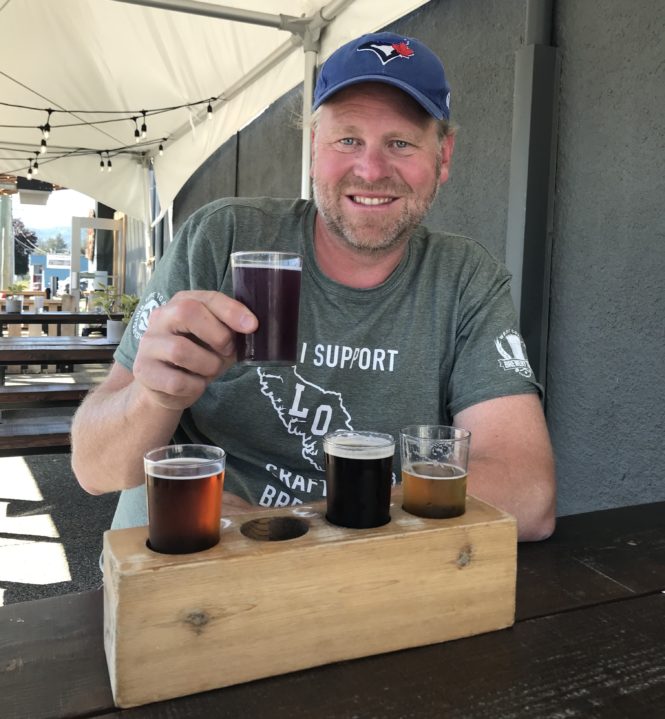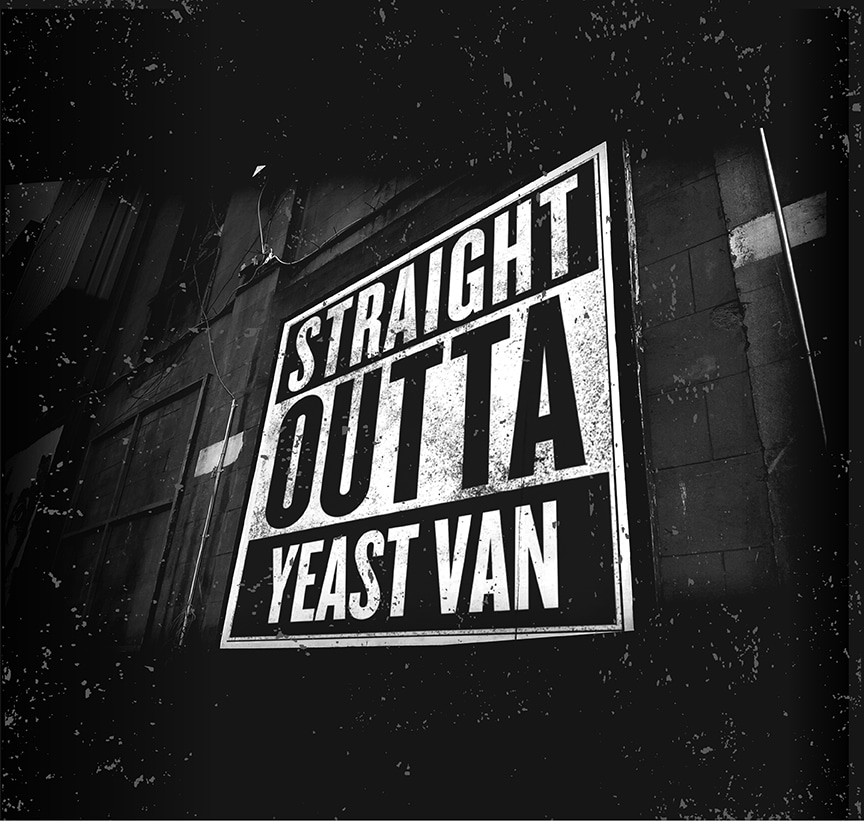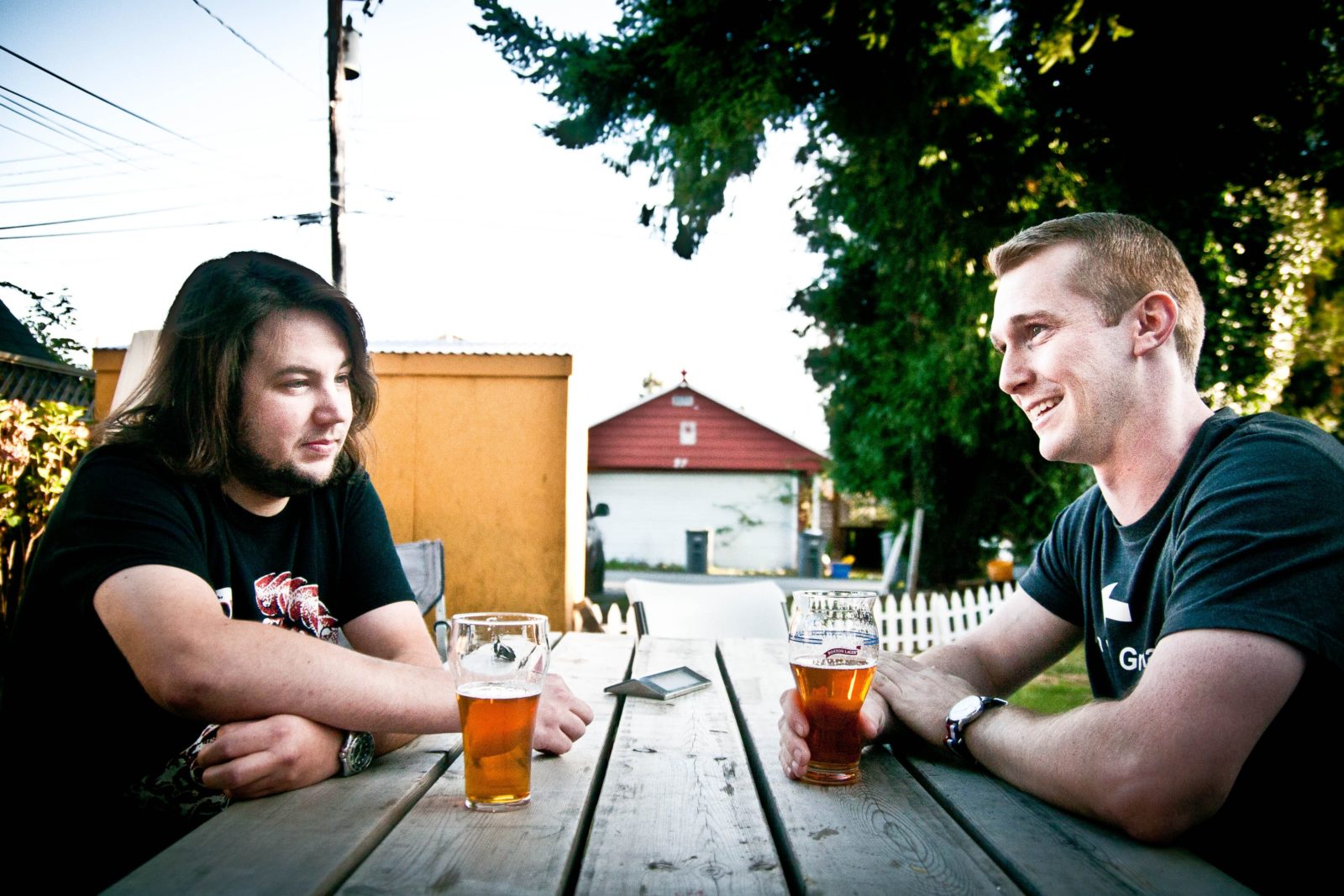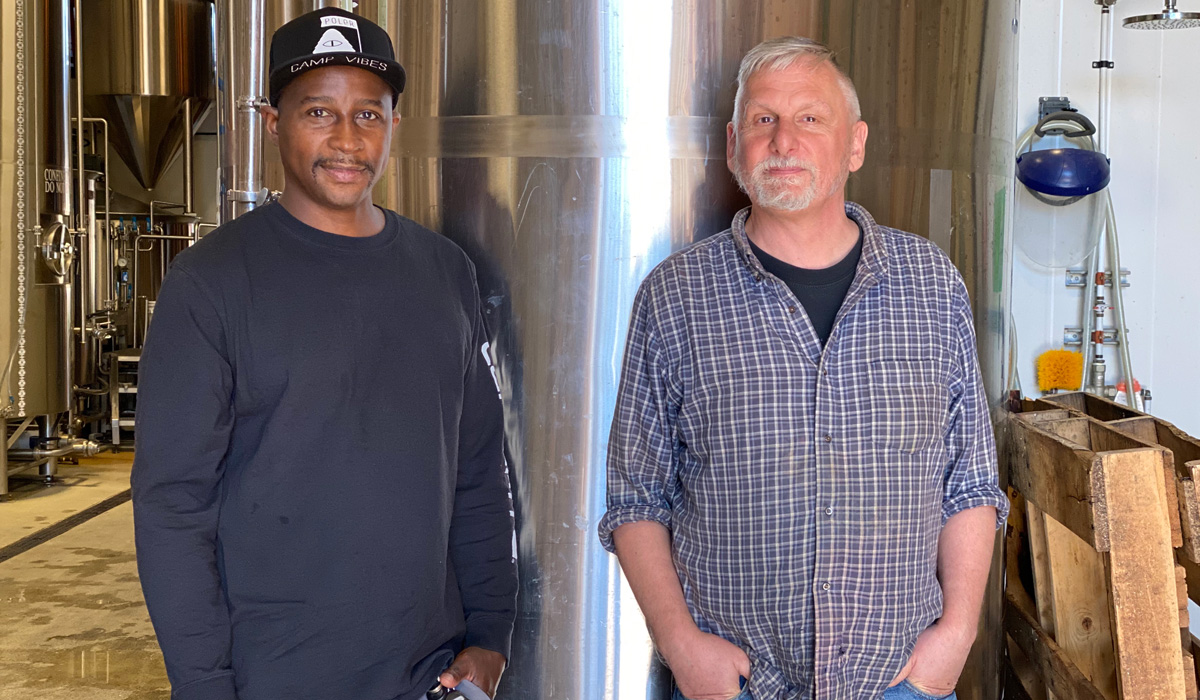
Langley is one of the hottest beer towns in B.C. right now. Since Trading Post Brewing opened in 2016, there has been a surge of new breweries, including Five Roads, Farm Country, Camp Beer, and most recently, Smugglers’ Trail Cask Works. Add the KPU Brewing School and Dead Frog up by the highway, and there is a lot to celebrate.
For the Langley edition of Brewer vs. Brewer, we brought together Tony Dewald, the brewmaster at Trading Post, who goes back three decades as a brewer, with Dave Henry, head brewer at Camp Beer Co., which opened late in 2019. With COVID in effect, the interview was conducted by Zoom. Tony and Dave got to be in the same room, at least, sipping beers at Trading Post, while I was stuck in my home office in Victoria with no beers (boohoo!). I started off by asking how they first met.
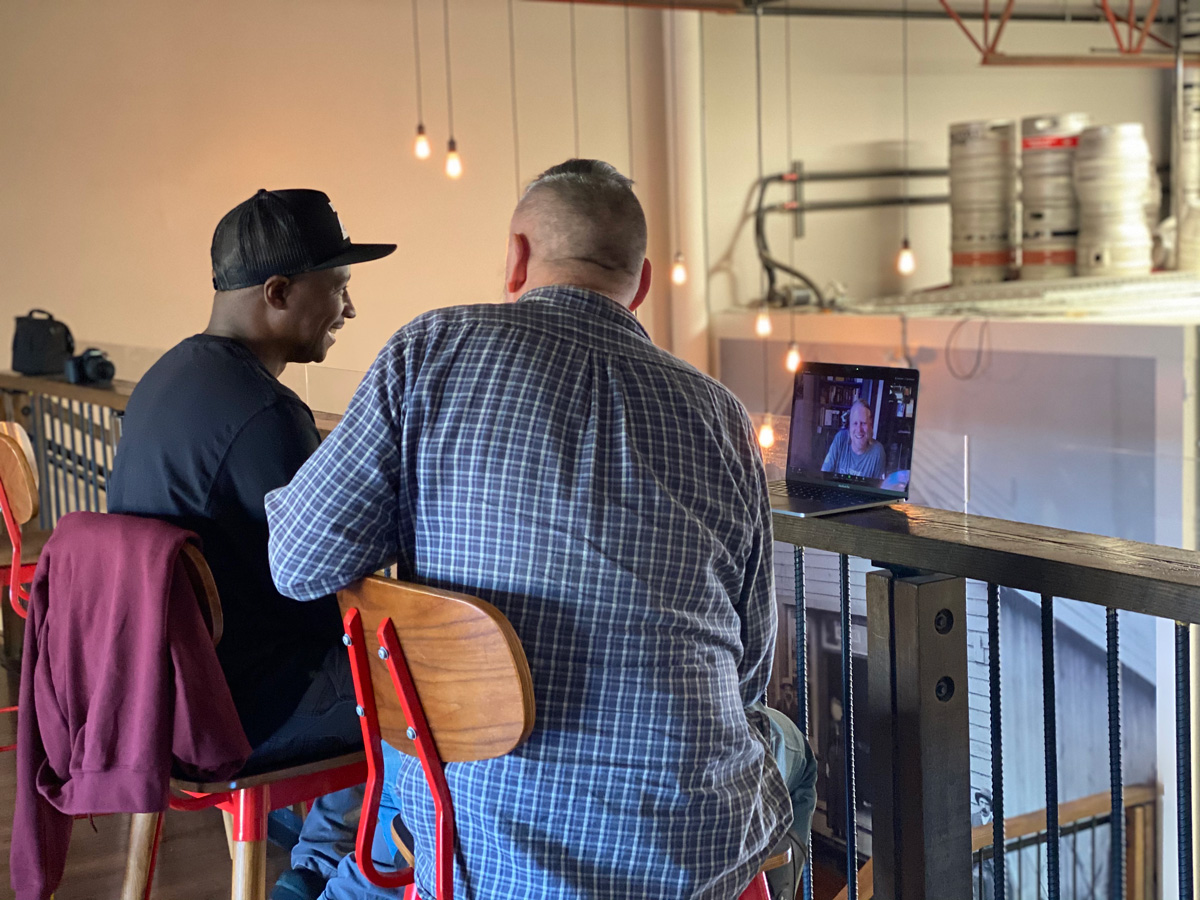
Dave Henry: Tony was working at Old Abbey and held a contest for home brewers: open entry and the best beer got to be brewed at Old Abbey with Tony. Shortly after the contest, Tony left, but I did brew the beer with another brewer there.
Joe: Tell me how the Full Barrel Home Brewers Club came to be.
Dave: Tristan [Stewart] and I were looking for home brew clubs to join and the only one that was close was out in Port Moody. It seemed a little bit far to go back and forth so we decided to start our own in Langley. We gathered a whole bunch of guys together and just kicked it off.
Tony Dewald: That’s Tristan from Temporal by the way.
Joe: So was Tony a mentor for you then?
Dave: Even before that, I would go out to Old Abbey and ask him questions. Our first official meeting was actually at Trading Post just after it opened. He helped us out quite a bit.
Tony: Dave was an avid home brewer before he turned pro. He has a sweet setup. He constantly has four or five beers on tap at home. He’s one of those guys. You go upstairs and there’s a kegerator or a keezer conversion. And then he’s got a board with all the descriptions. [Both laughing.]
Joe: Tony, you’re an old hand in this business…
Tony: I completed 30 years back in May so now I’m working on 31.
Joe: You’ve seen a lot of changes over the years…
Tony: So many changes!
Joe: Can you highlight a couple turning points along the way?
Tony: Back in 1990 when I started we said we all should have patience because when the people who are drinking beer start to get a little bit older and start having kids, then their kids grow up and start drinking beer based on what their dad is drinking, and then the revolution will become fulfilled. And lo and behold, wait 22 years until about 2012—one generation—and all of a sudden the craft beer world is completely transformed from what it was back then.
Joe: You came out of the brewpub culture in Vancouver with your history at Dix and the whole cask beer movement. What do you think of casks kind of disappearing now?
Tony: Even we are going to drop our cask nights, not just because of COVID, but also because we’re finding there is less and less support for it. When I started making casks at Dix I always resisted making them “novelty casks.” Cask beer is quite special because it has less carbonation, it’s served a bit warmer so your palate’s not numb and you get to experience the full range of flavours. For me that was the purpose of the cask. But for many it became, “I’ve put elephant flowers and this rare type of saffron from a particular valley.” [Dave chuckles and nods.]
Dave: I agree. The cask movement was a good thing for a while there and then it just went off the rails. People were putting gummy bears and all sorts of stuff in them. The beer wasn’t even that good any more. I hope that it comes back at some point, but it seems to have slid off a cliff.
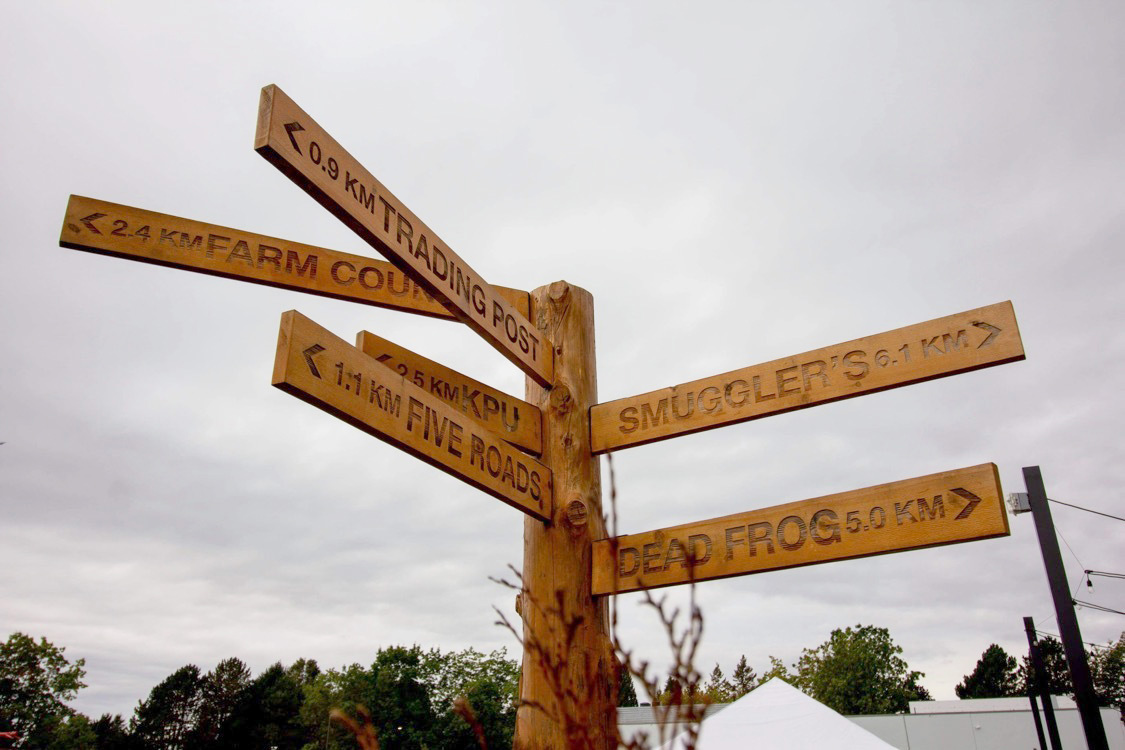
Joe: So what makes Langley so special?
Tony: Langley is one of the only places you can visit a brewery, a winery, a cidery, a meadery, and a distillery all in one day. I’m very proud of where we are. I like living on a farm, I like farming, and this is about as close as you can get to the city and live on farmland. It’s special to me. My hands go into the soil here; I drink water from a well.
Dave: I’ve lived in Langley for 12 years now. It’s a really cool area. It doesn’t matter which brewery you go to, they’re completely different from each other. And we all work with wineries and distilleries and collab with them to do all sorts of interesting stuff. It’s a really cool way to see an industry grow out here. It’s only going to get bigger.
Joe: KPU is down the road and they just started this Diversity in Brewing Scholarship.
Dave: I think that’s a great movement. You’re starting to see that all over the world really. There’s a lot of people in brewing — different colours, different everything — and sometimes people get overlooked. I think that doesn’t really happen that much here [in Canada], but it’s still nice to recognize that there are other people out there. We’ve done the KPU job fairs and the students are from all over the map. It looks like it’s almost 50% women now, too. It’s pretty cool to see so many different people getting into brewing.
Joe: How did COVID affect your brewery?
Dave: We opened on December 19th and got shut down on March 16th. A short, quick run. We had no plans of doing much off-site sales really. We were just doing a little bit of hand-canning to sell out of the tasting room. About a week later we went a full 180 degrees and started packaging everything. It kept us afloat. Once we were able to open at a limited capacity we just kept that going and it’s worked out really well. Eventually we were able to expand our patio a little bit into the parking lot. That was pretty amazing help because we were able to spread people out.
Joe: How about over at Trading Post?
Tony: We have a different business model than most other breweries with a central brewery and then we’ve opened two of our three satellite restaurants already, so we sell a lot of draft beer. The first month was a bit of a scramble, but like everybody else we were able to pivot towards more packaging. We were very lucky that the mobile canning service was available. We started doing direct home deliveries, and at least we were able to stay afloat and no one got ill. And then we re-opened in mid-June and we were able to work with the local government and our landlords to increase our patio spaces.
We did have a few setbacks. We run a festival every year in Fort Langley that we’d sold out and we had to cancel that. We also run a big music festival in Fort Langley in September. Again, a fair amount of money was unfulfilled, let’s say, but right now we’re quite hopeful for coming back on track in terms of budget expectations. And our ability to sell packaged beer suddenly seems to have no ceiling on it.
Dave: Yeah, it’s pretty crazy.
Tony: So when we come back to “normal life” at some point I think we’ll have a nice little packaged business as well as the draft business that we had expected to take up most of our capacity at the brewery. So look for expansion along the way or maybe even contract brewing.
Joe: What about over at Camp?
Dave: Like I said, we weren’t planning on doing much packaging; we wanted to just sell out of the tasting room. That’s why we got the spot we did with the big patio and everything, and it was working really well. And now we have a packaging part of our business that we weren’t planning on and it doesn’t seem like it’s going to go away. So we’re in that same stage where we’re trying to figure out how we can grow with both. In the future there’ll be more Camp around. We just gotta figure out how.
Joe: I think it’s great that we can talk about expanding even though we’re in the middle of this. Cheers to that!
This story originally appeared in the Fall/Winter 2020 issue of The Growler, out now! You can find B.C.’s favourite craft beer and cider guide at your local brewery, cidery, select private liquor stores, and by subscription here.

